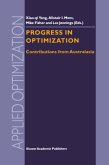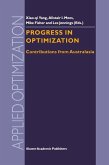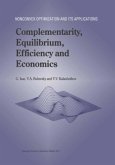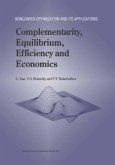In the fifties and sixties, several real problems, old and new, especially in Physics, Mechanics, Fluidodynamics, Structural Engi neering, have shown the need of new mathematical models for study ing the equilibrium of a system. This has led to the formulation of Variational Inequalities (by G. Stampacchia), and to the develop ment of Complementarity Systems (by W.S. Dorn, G.B. Dantzig, R.W. Cottle, O.L. Mangasarian et al.) with important applications in the elasto-plastic field (initiated by G. Maier). The great advan tage of these models is that the equilibrium is not necessarily the extremum of functional, like energy, so that no such functional must be supposed to exist. In the same decades, in some fields like Control Theory, Net works, Industrial Systems, Logistics, Management Science, there has been a strong request of mathmatical models for optimizing situa tions where there are concurrent objectives, so that Vector Optimiza tion (initiated by W. Pareto) has received new impetus. With regard to equilibrium problems, Vector Optimization has the above - mentioned drawback of being obliged to assume the exis tence of a (vector) functional. Therefore, at the end of the seventies the study of Vector Variational Inequalities began with the scope of exploiting the advantages of both variational and vector models. This volume puts together most of the recent mathematical results in Vector Variational Inequalities with the purpose of contributing to further research.
Bitte wählen Sie Ihr Anliegen aus.
Rechnungen
Retourenschein anfordern
Bestellstatus
Storno








